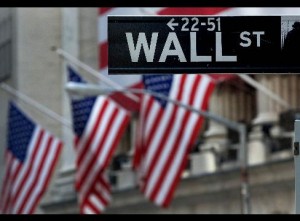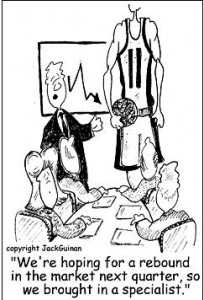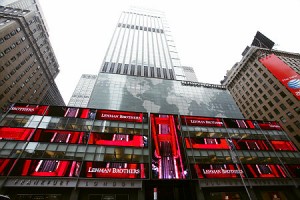 A number of people have asked in recent months why I have written so little about the sub-prime mortgage mess and its impact on the US economy. I often replied that I didn’t have a clue what to make of the mess or what it portends.
A number of people have asked in recent months why I have written so little about the sub-prime mortgage mess and its impact on the US economy. I often replied that I didn’t have a clue what to make of the mess or what it portends.
(Evidently, I am not nearly as clueless as John McCain who started off yesterday declaring that the “fundamentals of the US economy are strong.” But only hours later he was making the patently fatuous assertion that “The American worker and their innovation and their entrepreneurship, the small business, those are the fundamentals of America (sic) and I think they’re strong.” And just to reinforce his cluelessness he ended the day with a new TV ad declaring that “Our economy is in crisis.”)
Little did I know, however, that the masters of the universe on Wall Street were even more clueless.
Because only this explains the universally shocking meltdown over the weekend that wound up with the collapse of Lehman Brothers, the buyout of Merrill Lynch and the fate of American International Group (AIG), the world’s largest insurer, hanging in the balance. Not to mention the 500-point tumble in the Dow on Monday, which was the biggest one-day decline since 9/11 in 2001.
 In fact, this fallout stems from the gamble investment bankers (in New York, London, Hong Kong and elsewhere) took by betting the farm on sub-prime mortgages and other debt-laden transactions that would make any fly-by-night pyramid or Ponzi scheme seem financially sound.
In fact, this fallout stems from the gamble investment bankers (in New York, London, Hong Kong and elsewhere) took by betting the farm on sub-prime mortgages and other debt-laden transactions that would make any fly-by-night pyramid or Ponzi scheme seem financially sound.
This crisis is clearly deeper than anybody had imagined only a short time ago.
[Peter Stein, associate editor at The Wall Street Journal]
(Note: If you don’t know what sub-prime mortgages are by now, stop reading and go crawl back under your rock!)
And coming on the heels of the government’s recent bailout of Bear Sterns and receivership of mortgage giants Fannie Mae and Freddie Mac, this historic meltdown gives the impression that the entire US financial industry is now quivering in quick sand. Worse, nobody seems to know how or when the economy will rebound.
Indeed, many are calling this the biggest crisis to hit the financial markets since the Great Depression in 1929. And the worst may be yet to come – since the looming bankruptcy of AIG could make even the Great Depression seem like little more than a small-town budget crisis by comparison.
Are you enjoying watching this? You think this is funny?
[This is what one investment banker reportedly shouted at a crowd that had gathered yesterday to gawk at the procession of laid-off workers exiting the Lehman Brothers office building.]
 Meanwhile, the schadenfreude is palpable amongst those who think these developments herald the belated comeuppance of rich investment bankers who have been living easy on Wall Street for far too long – primarily by “wracking up big profits and sticking it to the taxpayer when things go sour.” And even though some glee over their pink slips is understandable, it is also shortsighted.
Meanwhile, the schadenfreude is palpable amongst those who think these developments herald the belated comeuppance of rich investment bankers who have been living easy on Wall Street for far too long – primarily by “wracking up big profits and sticking it to the taxpayer when things go sour.” And even though some glee over their pink slips is understandable, it is also shortsighted.
After all, it’s only a matter of time before this meltdown comes to Main Street, making daily transactions at commercial banks (e.g. getting a car loan or a mortgage) much more expensive.
That said, this is hardly the forum, and I am hardly qualified, to distill the myriad permutations of this financial crisis or to dispense advice on how to deal with it. Although, you might find this nutshell explanation of the crisis from The Wall Street Journal somewhat helpful:
Lehman, like Bear, Fannie and Freddie, had too much leverage. Think of a homeowner with a 96% mortgage and credit card bills. If the value of the house declines only 5%, the homeowner is wiped out. The total leverage of companies like Lehman is difficult to calculate, but it is not unlike that of a highly over-leveraged homeowner. Small declines in the value of its assets jeopardize its solvency.
 Finally, I feel obliged to reiterate the generally accepted fact that deposits at commercial banks (like Bank of America, Citibank and JP Morgan) are insured by the federal government (FDIC) up $100,000.
Finally, I feel obliged to reiterate the generally accepted fact that deposits at commercial banks (like Bank of America, Citibank and JP Morgan) are insured by the federal government (FDIC) up $100,000.
And since over 90% of Americans do not have account balances anywhere near that amount, you probably don’t have to worry about losing your savings the way many rich folks have now lost their investments on Wall Street.
All the same, it can’t hurt to ring your banker or broker for a little reassurance – especially if you are invested in a 401k or some other pension plan.
UPDATE
Government abandons free-market principles to save US economy…?
Today at 9:45 pm: Proving my point that nobody has a clue about how to deal with this unfolding crisis, the federal government threw AIG an $85 billion lifeline today, less than 48 hours after vowing not to bailout another financial institution.
Now the question becomes: what will happen when another corporation “too big to fail” (like GM or GE) looks to the government for taxpayer dollars to pay for their corporate losses? Never mind that the only honest answer anyone can give is: who knows?!
Frankly, if nothing else, this latest bailout should finally destroy the myth that the US is running a capitalist, free market economy. After all, this (and the other government bailouts cited above, which effectively privatized shareholder gains and nationalized losses), coupled with longstanding corporate subsidies, is indistinguishable from the way China runs its socialist, centrally planned economy.
Leave a Reply
You must be logged in to post a comment.